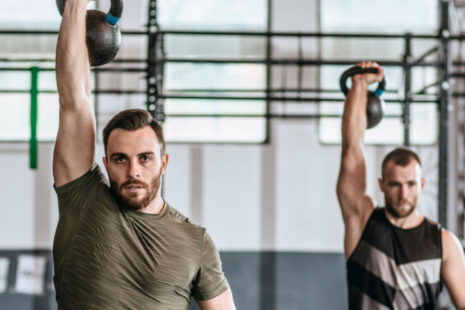Rotator cuff pain that worsens at night is a common complaint among individuals with rotator cuff injuries or conditions such as tendonitis or impingement syndrome.
Several factors can contribute to increased shoulder pain during nighttime…
- Inflammation – Inflammation is a common cause of rotator cuff pain, and inflammation levels can increase at night due to decreased activity and blood flow to the shoulder area. This heightened inflammation can lead to increased pain and discomfort, especially when lying down.
- Sleeping Position – Certain sleeping positions can exacerbate rotator cuff pain by placing pressure on the affected shoulder or causing the arm to be in an awkward or compressed position. Sleeping on the affected side or with the arm overhead can increase strain on the rotator cuff and aggravate symptoms.
- Stiffness – The shoulder joint may become stiff and immobile during periods of inactivity, such as during sleep. This stiffness can contribute to increased pain and difficulty moving the shoulder, particularly upon waking in the morning or when changing positions during the night.
- Muscle Tension – Tightness or tension in the muscles surrounding the shoulder joint, such as the neck, upper back, and chest muscles, can exacerbate rotator cuff pain and discomfort. This muscle tension may be more pronounced at night, leading to increased pain and stiffness in the shoulder.
- Nerve Compression – In some cases, rotator cuff pain at night may be due to compression or irritation of nearby nerves, such as the brachial plexus or cervical nerves. Nerve compression can cause radiating pain, numbness, tingling, or weakness in the shoulder, arm, or hand, which may worsen at night.
- Poor Posture – Maintaining poor posture during sleep, such as sleeping with the head and shoulders propped up on pillows or using an unsupportive mattress, can contribute to increased shoulder pain and discomfort. Improving sleep posture and using supportive pillows or cushions can help alleviate pressure on the shoulder and reduce nighttime pain.
If you experience persistent or worsening rotator cuff pain at night, it’s essential to consult with a healthcare professional, such as an orthopedic specialist or physical therapist, for an accurate diagnosis and appropriate treatment. They can assess your shoulder condition, identify any underlying factors contributing to your nighttime pain, and recommend specific interventions or strategies to help alleviate symptoms and improve sleep quality.




